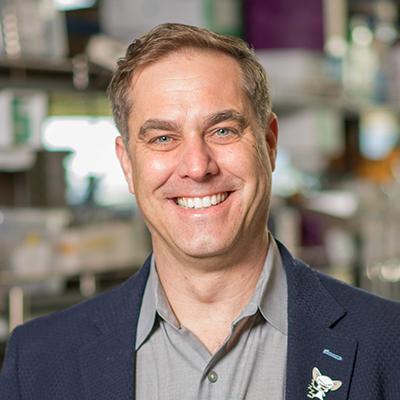Andrew Dillin

Andrew George Dillin is a Howard Hughes Medical Investigator and the Thomas and Stacey Siebel Distinguished Chair in Stem Cell Research at the Department of Molecular and Cell Biology at Berkeley. His lab studies the loss of protein homeostasis in aging, particularly in Caenorhabditis elegans.
Dillin’s work aims to shed light on the developmental processes of human neurodegenerative diseases, such as Alzheimer’s, Huntington’s, and Parkinson’s diseases.
Dr. Dillin’s laboratory works on the genetic and molecular mechanisms that regulate aging and aging-related disease. The Dillin lab is particularly interested in understanding why an organism begins to lose control over the quality and integrity of its proteins as it ages, and how the recognition of protein misfolding stress is communicated to distal tissues and organs. The lab utilizes emergent technologies to look at the manipulation of stress response pathways within a specific cell type or a single subcellular compartment within a specific cell type. In its research, the Dillin lab works with a variety of organisms, including mice and stem cells. However, the lab's historic roots are in working on the nematode C. elegans, a well-established model organism in aging studies. Dr. Dillin's laboratory is located on the fourth floor of the Li Ka Shing Center at the University of California, Berkeley.
Dillin’s work aims to shed light on the developmental processes of human neurodegenerative diseases, such as Alzheimer’s, Huntington’s, and Parkinson’s diseases.
Dr. Dillin’s laboratory works on the genetic and molecular mechanisms that regulate aging and aging-related disease. The Dillin lab is particularly interested in understanding why an organism begins to lose control over the quality and integrity of its proteins as it ages, and how the recognition of protein misfolding stress is communicated to distal tissues and organs. The lab utilizes emergent technologies to look at the manipulation of stress response pathways within a specific cell type or a single subcellular compartment within a specific cell type. In its research, the Dillin lab works with a variety of organisms, including mice and stem cells. However, the lab's historic roots are in working on the nematode C. elegans, a well-established model organism in aging studies. Dr. Dillin's laboratory is located on the fourth floor of the Li Ka Shing Center at the University of California, Berkeley.